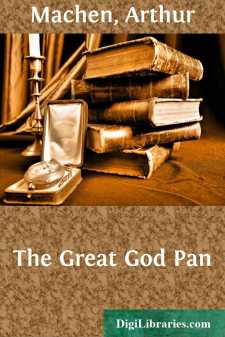Categories
- Antiques & Collectibles 13
- Architecture 36
- Art 48
- Bibles 22
- Biography & Autobiography 813
- Body, Mind & Spirit 142
- Business & Economics 28
- Children's Books 17
- Children's Fiction 14
- Computers 4
- Cooking 94
- Crafts & Hobbies 4
- Drama 346
- Education 46
- Family & Relationships 57
- Fiction 11829
- Games 19
- Gardening 17
- Health & Fitness 34
- History 1377
- House & Home 1
- Humor 147
- Juvenile Fiction 1873
- Juvenile Nonfiction 202
- Language Arts & Disciplines 88
- Law 16
- Literary Collections 686
- Literary Criticism 179
- Mathematics 13
- Medical 41
- Music 40
- Nature 179
- Non-Classifiable 1768
- Performing Arts 7
- Periodicals 1453
- Philosophy 64
- Photography 2
- Poetry 896
- Political Science 203
- Psychology 42
- Reference 154
- Religion 513
- Science 126
- Self-Help 84
- Social Science 81
- Sports & Recreation 34
- Study Aids 3
- Technology & Engineering 59
- Transportation 23
- Travel 463
- True Crime 29
The House of Souls
by: Arthur Machen
Description:
Excerpt
Introduction
It was somewhere, I think, towards the autumn of the year 1889 that the thought occurred to me that I might perhaps try to write a little in the modern way. For, hitherto, I had been, as it were, wearing costume in literature. The rich, figured English of the earlier part of the seventeenth century had always had a peculiar attraction for me. I accustomed myself to write in it, to think in it; I kept a diary in that manner, and half-unconsciously dressed up my every day thoughts and common experiences in the habit of the Cavalier or of the Caroline Divine. Thus, when in 1884 I got a commission to translate the Heptameron, I wrote quite naturally in the language of my favourite period, and, as some critics declare, made my English version somewhat more antique and stiff than the original. And so "The Anatomy of Tobacco" was an exercise in the antique of a different kind; and "The Chronicle of Clemendy" was a volume of tales that tried their hardest to be mediæval; and the translation of the "Moyen de Parvenir" was still a thing in the ancient mode.
It seemed, in fine, to be settled that in literature I was to be a hanger on of the past ages; and I don't quite know how I managed to get away from them. I had finished translating "Casanova"—more modern, but not thoroughly up to date—and I had nothing particular on hand, and, somehow or other, it struck me that I might try a little writing for the papers. I began with a "turnover" as it was called, for the old vanished Globe, a harmless little article on old English proverbs; and I shall never forget my pride and delight when one day, being at Dover, with a fresh autumn wind blowing from the sea, I bought a chance copy of the paper and saw my essay on the front page. Naturally, I was encouraged to persevere, and I wrote more turnovers for the Globe and then tried the St. James's Gazette and found that they paid two pounds instead of the guinea of the Globe, and again, naturally enough, devoted most of my attention to the St. James's Gazette. From the essay or literary paper, I somehow got into the habit of the short story, and did a good many of these, still for the St. James's, till in the autumn of 1890, I wrote a tale called "The Double Return." Well, Oscar Wilde asked: "Are you the author of that story that fluttered the dovecotes? I thought it was very good." But: it did flutter the dovecotes, and the St. James's Gazette and I parted.
But I still wrote short stories, now chiefly for what were called "society" papers, which have become extinct. And one of these appeared in a paper, the name of which I have long forgotten. I had called the tale "Resurrectio Mortuorum," and the editor had very sensibly rendered the title into "The Resurrection of the Dead."
I do not clearly remember how the story began. I am inclined to think something in this way:
"Old Mr. Llewellyn, the Welsh antiquary, threw his copy of the morning paper on the floor and banged the breakfast-table, exclaiming: 'Good God! Here's the last of the Caradocs of the Garth, has been married in a Baptist Chapel by a dissenting preacher; somewhere in Peckham.'" Or, did I take up the tale a few years after this happy event and shew the perfectly cheerful contented young commercial clerk running somewhat too fast to catch the bus one morning, and feeling dazed all day long over the office work, and going home in a sort of dimness, and then at his very doorstep, recovering as it were, his ancestral consciousness....




